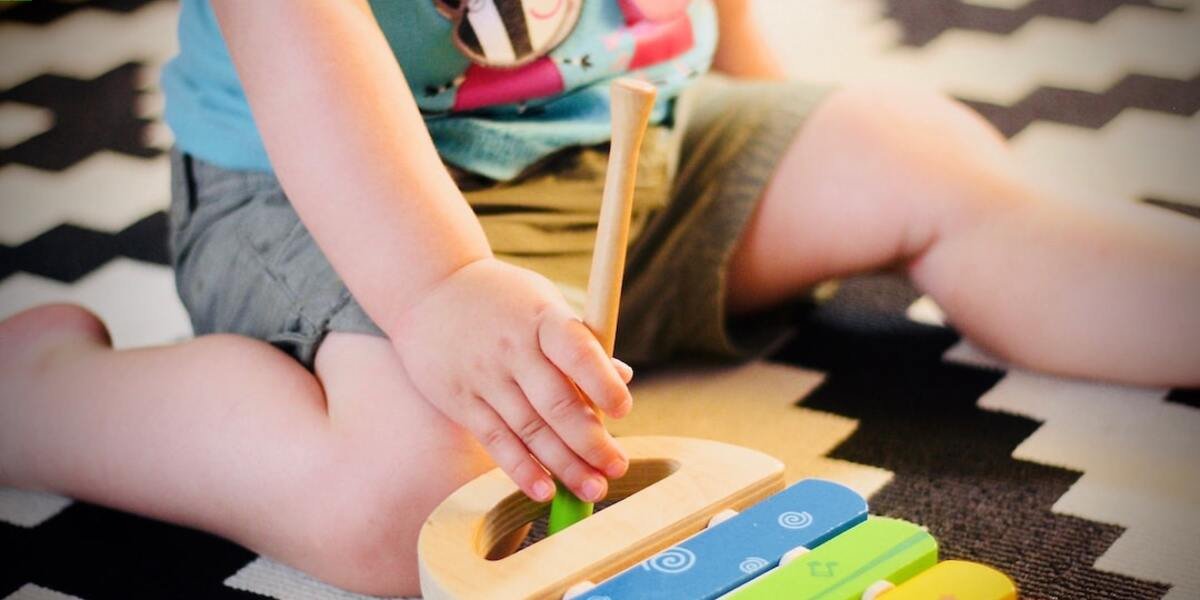Kindergarten Homework: A Comprehensive Approach to Early Learning
The term “kindergarten homework” often conjures images of tiny tots hunched over worksheets, their small fingers gripping pencils as they learn to draw shapes and numbers. While the tried-and-true method has its place in early learning, there’s so much more to kindergarten homework than meets the eye. It extends beyond pen and paper exercises into an immersive experience that engages young minds at a crucial developmental stage.
As parents and educators who play pivotal roles in shaping these formative years for children, adopting a comprehensive approach towards kindergarten homework is critical. We’re not just preparing them academically; we aim to nurture holistic development – cognitive, social-emotional growth while instilling love for lifelong learning right from their nascent stages of education.
Did you know?
Contrary to popular belief, research indicates that kindergarten-age children benefit more from play-based activities than traditional homework assignments, fostering not only their cognitive development but also social and emotional growth.
The Role of Kindergarten Homework in Early Childhood Development
Kindergarten homework holds a significant place in the landscape of early childhood development. It plays an instrumental role in fostering children’s learning enthusiasm and intellectual growth, setting the academic stage for youngsters to build on as they progress through their education journey.
In 2023, kindergarten homework has evolved beyond traditional worksheets and coloring pages. Today’s tasks are designed with young learners’ inherent curiosity and developmental needs in mind. Critical thinking exercises, interactive games or activities that promote social-emotional learning are all part of modern-day Kindergarten assignments.
While these tasks provide ample opportunities for skill refinement at home primarily focused around reading readiness, fine motor skills development among others; it also brings alignment between school-based learnings and the child’s environment outside classrooms. By making parents active participants in this process aids communication lines between them & educators which can only be beneficial towards building a more rounded picture about child’s abilities – moving away from sole dependence on isolated assessments alone.
Understanding the Educational Benefits
Kindergarten homework plays a crucial role in early childhood development by enhancing the educational benefits. In 2023, we notice an emerging understanding and acceptance towards this concept among parents and educators alike.
Firstly, kindergarten homework serves as an extension of classroom learning. It enables children to revisit concepts taught at school at their own pace which solidifies their understanding.
Secondly, it fosters independent thinking skills. With gentle guidance from adults, kids get a chance to explore solutions on their own using creativity and critical-thinking capabilities they’ve been nurtured with during class lessons.
Next is the enhancement of time-management skills. Kindergarten isn’t too early to start grasping basic organizational habits! An appropriate amount of home tasks can help them learn how to manage assignments within given time frames – quite possibly one of life’s most valuable disciplines!
Additionally, there are language developmental perks associated with kindergarten homework too. Reading or writing assignments promote improvements in literacy levels including vocabulary expansion that fuels better articulation abilities over time.
Finally yet importantly is family involvement aspect-it strengthens parent-child relationships considerably | but also keeps grownups involved actively throughout child’s Learning Journey providing insight about progress followed along term.
Establishing a Routine for Young Learners
Establishing a good routine can be an integral part of early childhood education, especially when it comes to kindergarten homework. Homework at this age isn’t about the tasks themselves but is more focused on skill development and nurturing essential study habits.
When setting up a homework routine for your child, consistency is key. A regular schedule helps young learners understand what is expected of them and creates predictability in their day-to-day lives. It could include assigning specific hours during which they do their kindergarten homework after returning from school or introducing breaks between work sessions based on effort or time spent on learning activities.
It’s also critical to create a productive environment that stimulates focus without distractions like loud noises or electronic devices unless these are necessary for completing certain assignments. This might mean designating an area solely dedicated to doing homework where all needed materials such as pencils, paper and books are available within arm’s reach.
Remember that routines should not only revolve around academics; free play opportunities also have exceptional value during this stage of life because they contribute positively towards physical health along with fostering creativity and problem-solving abilities.
The structure provided by well-planned schedules supports children in developing strong self-regulation ability – essential aspect while preparing youngsters for higher grades wherein management skills become increasingly important.
Strategies for Effective Homework Implementation in Kindergarten
Homework is a key aspect of the education process, even in Kindergarten. In recent years there has been an increasing emphasis on early childhood development and homework can play a vital role in this journey. However, it’s important to execute strategies effectively to ensure that kindergarten homework facilitates learning rather than causing stress.
The first step towards effective implementation is understanding its purpose for kindergarteners. Homework at this stage isn’t about rigorous academic accomplishment but more about fostering basic skills such as responsibility, time management and following directions through consistent practice over time.
Creating engaging content forms another crucial strategy for implementing kindergarten homework efficiently in 2023. Teachers should aim at making assignments interactive- incorporating elements like drawing or storytelling tasks which make them fun while still facilitating skill-building activities.
Maintaining close ties with parents also plays an integral part when assigning work to these youngsters at home. Communicating clear expectations of what needs completing each day enables parents to better support their child during homework completion processes which can be challenging due both newness of the concept and the age factor involved.
To summarize, effectiveness doesn’t just come from giving out worksheets; instead cultivating habits by consistently practicing essential life skills through enjoyable tasks coupled with strong communication channels between school ecosystem & homes helps children adapt better hence enhancing overall growth trajectory right from Kindergarten.
Tailoring Assignments to Meet Developmental Needs
In ensuring effective kindergarten homework implementation, it’s imperative we consider the developmental needs of our little learners. Here are some strategies to tailor assignments in a way that respects and nurtures these important early stages.
Firstly, let’s make clear the purpose of kindergarten homework: It should be designed primarily as an avenue for parents or guardians to participate constructively in their child’s education. Also, its secondary role is preparing kids subtly for future learning habits rather than academic advancement per se.
Indeed, one crucial element when tailoring such homework is considering children’s limited attention span at this age group. As evidenced by recent studies from 2023 reports, prolonged engagement on a singular task isn’t optimal for kindergarteners’ cognitive development; instead incorporating varied activities within shorter time frames offers better results. Juxtapose math-based tasks with those involving languages or nature exploration—keeping things diverse helps maintain interest while nurturing multiple skill sets concurrently.
Next up involves adjusting difficulty levels – Kindergarten marks just the start of formal schooling after all! So expecting them to sit down and solve complex problems right off the bat might lead more towards fear than love for learning itself – something no educator aims at cultivating!
Instead cater workloads proportionate to their current capabilities along with gradual increments over time as they progress through syllabus confidently & joyously without getting overwhelmed unnecessarily soon!
Encouraging Parental Involvement and Support
In today’s swiftly evolving digital age, the role of parental involvement in a child’s academic journey cannot be overstated. It is particularly vital when it comes to kindergarten homework – an area where little learners need the most gentle push and guidance.
Parents are not just bystanders; they play a crucial role as first teachers. Their interactions with children significantly impact their view of learning and education from early on. When parents show interest in their kids’ kindergarten homework, it sends out a powerful message: Learning matters!
Let’s take you through some effective strategies that can help you encourage parental involvement:
1. **Communicate Regularly:** Establishing clear lines of communication with parents goes beyond school conventions or parent-teacher meetings. Keep them updated about what children are learning and how they’re progressing by sending home weekly updates or newsletters.
2. **Create Homework Guides for Parents:** Often, parents want to lend support but struggle because teaching methods have evolved since they were students themselves! Send home simple guides explaining how to assist youngsters without doing all work for them – remember we aim at fostering independence too.
3.Promote “Learning Through Play”: Promote this time-tested method among your student’s families using different playful activities like puzzles, pretend plays etc., which make homework fun rather than burdensome chore.
4.Make Involvement Easier: If possible, set up online platforms (like Google Classroom) where parents can see upcoming assignments hence plan ahead accordingly.
Measuring the Impact of Homework on Kindergarteners’ Academic Progression
Homework for kindergarteners, in 2023, is currently a hot topic of debate among educators and parents alike. Yet its essence seems to be misunderstood by many as they try to measure its impact on academic progression amid the dynamic landscape of early childhood education.
Contrary to popular belief, kindergarten homework isn’t naturally about worksheets filled with math problems or spelling exercises. Rather it encompasses engaging activities such as storytelling sessions, drawing pictures based on imagination or looking for shapes during a walk around the block; all aimed at stimulating their young minds while reinforcing classroom learning experiences.
Measuring the true values instilled through these tasks calls for parameters beyond traditional grading systems. It reflects more prominently in children’s ability to apply what they learn creatively across various real-life scenarios outside classrooms – an essential pillar of holistic development emphasized profoundly within contemporary pedagogical frameworks.
That being said, not every child responds exactly same way towards home assignments given during this crucial educational stage – hence underlining again why one-size-fits-all approach seldom works when dealing with tender psyches aged typically between four and six years old.
Parents often play key roles here: observing their kids closely can reveal signs whether those little ones are feeling motivated enough attempting these take-home projects or if unintended pressure might actually be causing counter-productive stress instead. Remembering that line separating healthy challenges from unnecessary burdens will likely help your budding genius bloom further without losing his/her natural curiosity ever so important throughout life-long learning journeys yet ahead!
Tools and Methods for Assessing Learning Outcomes
In today’s world, assessing the learning outcomes of kindergarten homework is crucial in understanding a child’s academic progression. While it might appear challenging at first, there are several effective tools and methods that can greatly simplify this process.
Firstly, rubrics stand out as an essential tool for evaluating the impact of kindergarten homework. They provide clear criteria for what constitutes success at varying levels and assist teachers to objectively measure progress. The beauty lies in their adaptability – with tailored parameters to address specific tasks or skills.
Secondly, we have portfolio assessments – collections of students’ work over time which offer tangible evidence of learner growth. These not only document student achievement but also help educators pinpoint areas requiring attention.
Formative assessments play another vital role when pondering how effectively kindergarteners learn from their homework assignments. This ongoing assessment method enables real-time feedback adjustment during the teaching-learning cycle hence fostering improvement before it’s too late.
Lastly but equally important are parent-teacher meetings – regular interactions between parents and teachers bring forth invaluable insights about children’s performance beyond classroom boundaries; revealing impacts made by home-based activities including kindergarten-homework on overall advancement.
Remember though,(and keep priority), all these tools must be employed keeping each individual child’s pace into consideration because every kid possesses unique learning abilities; making ‘one size fits all approach’, ineffective!
Balancing Play and Structured Activities
Balancing play and structured activities in relation to kindergarten homework can be a challenging task for parents and educators. It requires striking the perfect harmony between fun, creativity, and learning – an essential component of early childhood education.
Child development experts continue to emphasize the importance of “play” in fostering cognitive growth during kids’ formative years. Simultaneously delivering quality educational content also remains imperative, especially concerning kindergarten homework tasks.
Achieve optimal balance by tactically combining both elements within standard routines. Employ these actionable strategies today:
1) **Infusing Play Into Homework**: When assigning or helping with kindergarten homework, try making it as playful as possible because children are naturally inclined towards games.
Schedule timeframes that alternate periods of concentrated academic work with lighter moments filled with creative games relevant to what they’ve learned.
3) **Utilize Interactive Educational Tools**: With technological advancements over recent years now well-integrated into our daily lives (including education), such tools provide interactive ways to learn while incorporating gameplay features effectively engaging their interest levels significantly more than traditional methods ever could hope too!
Conclusion
So, let’s bid a happy goodbye to those kindergarten homework anxieties. With a comprehensive approach and the right strategies in your tool belt, guiding our young learners is not so overwhelming after all! Remember that patience, creativity, and consistency are key ingredients for success as you traverse this exciting journey with them.
Before you go exploring other areas of childhood education on our website, take a moment to absorb the value that practical yet enjoyable kindergarten homework can bring into early learning. Dive deep into more resources available here at fingertips about children’s education – connecting parents and educators alike toward nurturing future leaders one day at-a-time.







